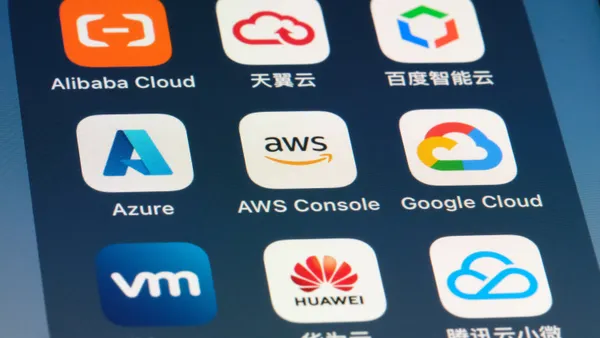Dive Brief:
-
When most people think of outsourcing, it comes with international connotations. But outsourcing abroad is steadily declining in favor of simply outsourcing externally to companies within the country's own backyard, such as Nexient in California, Rural Sourcing in Georgia or Catalyte in Maryland, reports ZDNet.
-
The move comes as the costs of labor abroad are on the rise. Whereas American software developers were once five to six times more expensive than an Indian outsources, today they are only twice more expensive, according to the report. Paying twice as much is oftentimes worth it to companies because American developers do not have time-zone, cultural or language barriers, allowing them to be more agile and reactive to customer needs with immediate or real-time support.
-
Outsourcing within American geographic boundaries may help bring about a "resurgence" in the domestic tech workforce and appeal to companies looking to consolidate business operations closer to home, said Mark Orttung, CEO of Nexient, reports ZDNet. The renewed turn to domestic outsourcing, however, is still far from superseding international outsourcing.
Dive Insight:
Questions and qualms about outsourcing today come amid a period of introspection about American companies' relation to domestic and international workers. In California, a bill prohibiting state universities from displacing current workers with outsourced jobs was approved by Gov. Jerry Brown earlier this month.
President Trump's "Hire American" order and changes to the H-1B visa program are generating many changes in the tech workforce. While many tech giants have come out in favor of protection and expansion of DACA and the H-1B program, further action remains up to the president and Congress.
Outsourcing is not the only way companies are getting work done outside their employee base. Contracting requests for technical work have tripled since 2015, and the positions offer many employees flexibility in scheduling, vacation and project workloads they could not get in a traditional office setting.
The tech industry is still plagued by a shortage of skilled workers, especially in advanced technologies like artificial intelligence, the Internet of Things and the cloud. Contractors and domestic outsourcers, however, are important populations to keep an eye on in the coming years.












